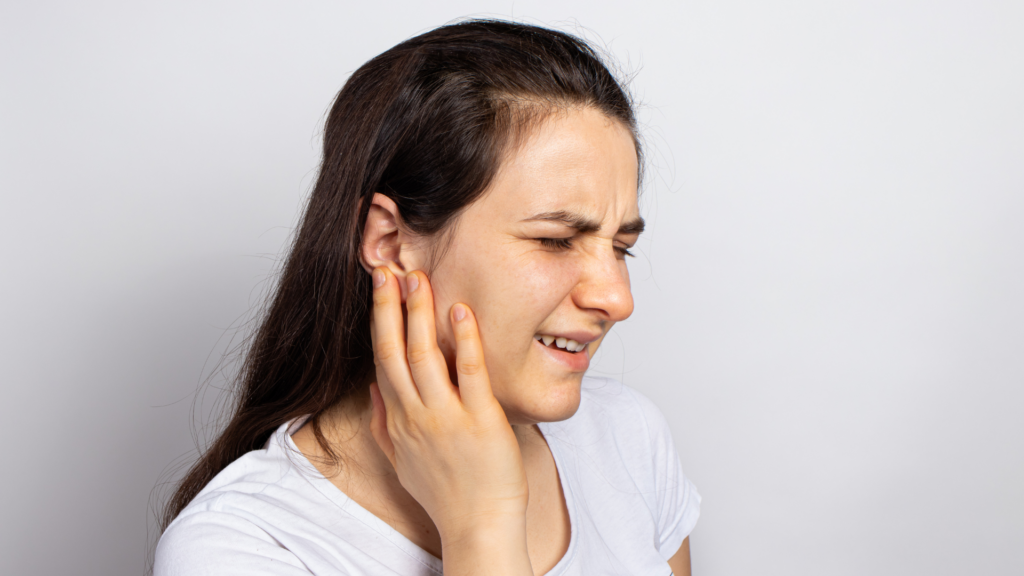Understanding TMJ and Home Remedies for TMJ Pain
Temporomandibular joint (TMJ) disorders can cause significant discomfort and affect the proper functioning of the jaw. TMJ pain can be debilitating, making it difficult to eat, speak, and carry out daily activities. While medical intervention may be necessary in severe cases, several home remedies can help alleviate TMJ pain and improve jaw function. In this article, we will explore the causes and symptoms of TMJ, discuss effective home remedies for TMJ pain relief, and provide guidelines for seeking medical attention when necessary.
Understanding TMJ
The temporomandibular joint connects the jawbone to the skull and plays a crucial role in chewing, speaking, and yawning. When this joint is affected by various factors, it can lead to TMJ disorders. Some common causes of TMJ disorders include:
- Jaw misalignment: Misalignment of the jaw due to injury, malocclusion, or tooth grinding can put excessive strain on the TMJ, leading to pain and dysfunction.
- Bruxism: Teeth grinding or clenching, often occurring during sleep, can exert pressure on the TMJ, resulting in inflammation and discomfort.
- Stress: Emotional stress and tension can cause individuals to unknowingly clench their jaw or grind their teeth, contributing to TMJ problems.
- Arthritis: Certain types of arthritis, such as osteoarthritis or rheumatoid arthritis, can affect the TMJ and cause pain and stiffness.
Symptoms of TMJ disorders may include:
Experiencing jaw pain or tenderness, accompanied by clicking or popping sounds during mouth movements, could indicate temporomandibular joint (TMJ) issues. This condition may lead to difficulty or discomfort while speaking or chewing, and in some cases, individuals might also suffer from headaches or earaches.
Moreover, TMJ problems can result in jaw locking or a restricted range of motion, causing further discomfort.
Home Remedies for TMJ Pain
To alleviate temporomandibular joint (TMJ) pain and discomfort, several self-care methods can be employed.
Heat or Cold Packs
One effective approach is the application of heat or cold packs to the affected area. Using a warm compress or an ice pack can help reduce inflammation and provide relief. Alternating between heat and cold therapy can yield optimal results in easing the pain.
Over-the-counter Pain Relievers
For temporary relief, over-the-counter pain relievers like non-steroidal anti-inflammatory drugs (NSAIDs), such as ibuprofen, can be used to reduce inflammation and alleviate TMJ pain. However, it is crucial to adhere to the recommended dosage and seek medical advice if the pain persists.
Stress Management
Since stress can worsen TMJ pain, adopting stress management techniques is crucial in managing symptoms. Engaging in activities that promote relaxation, such as deep breathing exercises, meditation, or pursuing hobbies, can help alleviate stress and its impact on TMJ discomfort.
Stress Reduction Techniques: Stress can exacerbate TMJ pain by causing jaw clenching and muscle tension. Therefore, incorporating stress reduction techniques into your daily routine can be beneficial. Some effective stress management techniques include:
- Practicing relaxation exercises, such as deep breathing, meditation, or yoga.
- Engaging in regular physical exercise to release tension and promote overall well-being.
- Participating in activities that bring joy and help divert attention from pain, such as hobbies, socialising, or listening to music.

Jaw Exercises
Performing jaw exercises and stretches can be beneficial. Gentle stretching and exercising of the jaw muscles improve flexibility, relieve tension, and promote healing. It is advisable to consult with a healthcare professional or a physical therapist to receive personalised exercises suitable for one’s specific condition.
Dietary Changes
Certain foods and beverages can trigger or worsen TMJ symptoms. Making dietary changes can help minimise discomfort and support jaw health. When dealing with TMJ-related concerns, several dietary considerations can play a significant role in managing symptoms effectively.
It’s wise to be mindful of certain substances that can impact muscle tension. Limiting the consumption of caffeine, alcohol, and tobacco is advisable, as they have the potential to increase muscle tension, potentially worsening TMJ symptoms. By being cautious with food choices and considering these dietary adjustments, individuals can take positive steps in managing their TMJ condition more effectively. However, for personalized advice, consulting with a healthcare professional is recommended.
Soft Diet
Modifying one’s diet is another effective measure. Avoiding hard or chewy foods can reduce strain on the TMJ. Opting for softer foods that require less chewing and cutting food into smaller, bite-sized pieces can also alleviate discomfort during meals.
A soft diet can be highly beneficial in alleviating TMJ-related issues. Including foods like soups, smoothies, mashed vegetables, and tender meats can provide nourishment while minimising the stress on the temporomandibular joint. These softer options are less likely to cause discomfort during chewing, making them ideal choices for those experiencing TMJ pain.
Posture
Maintaining good posture plays a vital role in minimising jaw strain and TMJ pain. Being mindful of posture while sitting and standing ensures proper alignment of the head, neck, and spine, which can contribute to overall relief from TMJ-related issues.
Splint
TMJ splint can help relieve jaw pain caused by TMJ disorders. It is designed to stabilise your jaw joint, reduce pain and muscle tension, and protect your teeth from grinding. Read more on how TMJ Splint can help with TMJ Pain here.
By incorporating these lifestyle modifications into daily life, individuals with TMJ disorders can experience improved symptom management and a better quality of life.
When should you visit a Doctor?
The Pain Does Not Improve After Three Months
If you have diligently tried various home remedies, such as applying heat or cold packs, doing jaw exercises, and practicing stress reduction techniques, but the pain persists without any significant improvement after three months, it is recommended to consult a medical professional. They can evaluate your condition, assess the effectiveness of your current management strategies, and provide further guidance or treatment options.
Severe Pain
Severe TMJ pain can significantly impact your quality of life, making it challenging to perform essential functions such as eating, speaking, or carrying out daily activities. If the pain becomes increasingly intense, interferes with your ability to perform routine tasks, or causes significant discomfort, it is important to seek medical attention promptly. A pain doctor or healthcare professional can assess the severity of your condition and provide appropriate interventions to alleviate your symptoms.
Limited Range of Motion
TMJ disorders can sometimes lead to jaw locking, making it difficult to open or close your mouth fully. Additionally, a limited range of motion in the jaw joint can restrict your ability to chew or speak properly. If you experience persistent jaw locking or have difficulty moving your jaw freely, it is advisable to consult a healthcare professional who specializes in TMJ disorders. They can evaluate the underlying cause of the locking or limited range of motion and recommend appropriate treatments or therapies to address the issue.
Swelling, Fever, Or Other Concerning Symptoms
While TMJ pain is often localized to the jaw area, it is essential to be aware of any accompanying symptoms that could indicate a more serious underlying condition. If you experience swelling, fever, or other concerning symptoms along with TMJ pain, it is crucial to seek medical attention promptly. These additional symptoms could suggest infection, inflammation, or other complications that require immediate evaluation and treatment.
How Can We Help with TMJ Pain?
Our Pain Doctors specialise in diagnosing and treating a diverse array of pain conditions, including TMJ disorders, through the application of minimally invasive treatments. With a wealth of knowledge and experience in managing a broad spectrum of pain conditions, including TMJ disorders, we provide an extensive array of effective interventions to address your unique needs.
Minimally Invasive Treatments
Platelet Rich Plasma (PRP)
One such non-invasive treatment option for TMJ disorders is Platelet Rich Plasma (PRP) injection. PRP therapy uses a patient’s own blood plasma, enriched with a high concentration of platelets, to stimulate natural healing and tissue regeneration. This minimally invasive procedure involves injecting PRP directly into the affected area, triggering the body’s self-healing mechanisms. PRP injections can effectively reduce inflammation, alleviate pain, and support the repair of damaged tissues, providing significant relief for TMJ-related symptoms.
Botulinum Toxin Injection
Botulinum Toxin Injection offers relief from TMJ pain by inducing muscle relaxation in the targeted area. This relaxation alleviates jaw tension and prevents the muscles from engaging in unconscious jaw movements, which can lead to headaches and discomfort. In the context of conditions related to TMJ disorder, Botulinum Toxin functions by partially limiting the movement of the temporomandibular joint. It does not immobilise the joint entirely but rather reduces involuntary movements. Additionally, it acts as a cushion for the jaw during routine activities such as eating, talking, swallowing, and other everyday functions, effectively minimising pain and enhancing overall comfort.
At Singapore Paincare, we place a strong emphasis on the effectiveness and benefits of non-invasive approaches for managing TMJ pain. Opting for non-invasive treatments allows patients to find relief from their symptoms while minimising the associated risks, complications, and downtime linked with surgical procedures. These non-invasive methods offer a gentler and safer approach, concentrating on addressing pain sources through specialised injections and minimally invasive procedures. They enable individuals to effectively manage their TMJ pain while reducing potential drawbacks related to more invasive methods.
Conclusion
While home remedies can be effective in managing TMJ pain, it is essential to seek professional medical advice if the symptoms persist or worsen. Pain doctors specialise in diagnosing and treating TMJ disorders, providing tailored treatment plans to alleviate pain and improve jaw function.
At Singapore Paincare, our team of pain doctors specialises in the management of TMJ disorder-related pain. We are dedicated to offering thorough assessments and providing personalised treatment strategies designed to address your unique needs.






